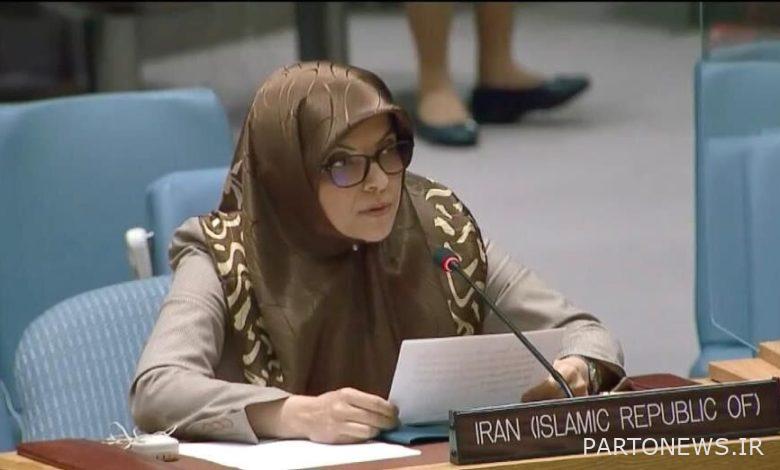Iran: Terrorism and foreign aggression are major threats to the security of women in the Middle East

According to IRNA, Zahra Ershadi, Iran’s ambassador and deputy representative to the United Nations, said Wednesday at local time at a Security Council meeting on women, peace and security, referring to the situation of women in the Middle East, including Palestine, that sexual violence is a heinous crime. Which is often used as a tactic of war and terrorism.
“The main threats to women’s security in the Middle East include occupation, foreign aggression and terrorism, threats that have no respect for women’s rights and lives,” she said. The situation of Palestinian girls and women is a clear example of this.
“In armed conflicts, sexual violence disproportionately affects women and girls, as well as people in vulnerable situations, and women and girls are the main victims,” he said. Ershadi added that armed conflict also increases the risk of human trafficking, which unfairly targets women and children fleeing war or being forcibly displaced.
The senior diplomat of the Islamic Republic of Iran stated: In armed conflicts, international humanitarian law prohibits all forms of sexual abuse against women and provides protection for civilians, including women and girls.
He pointed out that in this regard, the four Geneva Conventions and its two Additional Protocols explicitly and implicitly condemn various forms of sexual violence as a serious violation of humanitarian law in international and domestic conflicts.
Ershadi stressed that preventing and combating this inhumane act requires collective efforts. However, the efforts will not be successful until the root causes, namely the circumstances surrounding the outbreak of an armed conflict, are addressed.
Iran’s deputy representative to the United Nations has stated that ending all armed conflict is the most effective way to prevent such crimes. Unfortunately, such a solution will not be achieved as long as terrorism, violent extremism, occupation and foreign intervention continue.
The Iranian representative also referred to the situation of women in Afghanistan and said that the current situation in Afghanistan has had a strong impact on the rights of Afghan women. According to a recent UN report, women and girls are being targeted as part of a systematic and widespread violence in a concerted campaign to limit their participation in social and political life. Afghan women should enjoy their political and social rights, such as the right to education, employment and political participation.
Iran’s Deputy Representative to the United Nations also stressed the principled position of our country that issues related to women and girls should be addressed by the General Assembly and other UN bodies, and that the Security Council should address these issues only if the issues are addressed directly. International peace and security are relevant.

